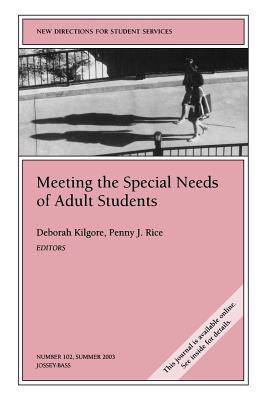
- Afhalen na 1 uur in een winkel met voorraad
- Gratis thuislevering in België vanaf € 30
- Ruim aanbod met 7 miljoen producten
- Afhalen na 1 uur in een winkel met voorraad
- Gratis thuislevering in België vanaf € 30
- Ruim aanbod met 7 miljoen producten
Zoeken
Meeting the Special Needs of Adult Students
New Directions for Student Services, Number 102
€ 30,95
+ 61 punten
Omschrijving
Examines the ways student services professionals in institutions of higher education can best meet the needs of adult learners. Most of the discussion here is situated in four year colleges and universities, although it is recognized that community colleges play a large role in the higher education of adults.
Specificaties
Betrokkenen
- Uitgeverij:
Inhoud
- Aantal bladzijden:
- 128
- Reeks:
Eigenschappen
- Productcode (EAN):
- 9780787969912
- Verschijningsdatum:
- 13/06/2003
- Uitvoering:
- Paperback
- Afmetingen:
- 155 mm x 229 mm
- Gewicht:
- 186 g

Alleen bij Standaard Boekhandel
+ 61 punten op je klantenkaart van Standaard Boekhandel
Beoordelingen
We publiceren alleen reviews die voldoen aan de voorwaarden voor reviews. Bekijk onze voorwaarden voor reviews.






